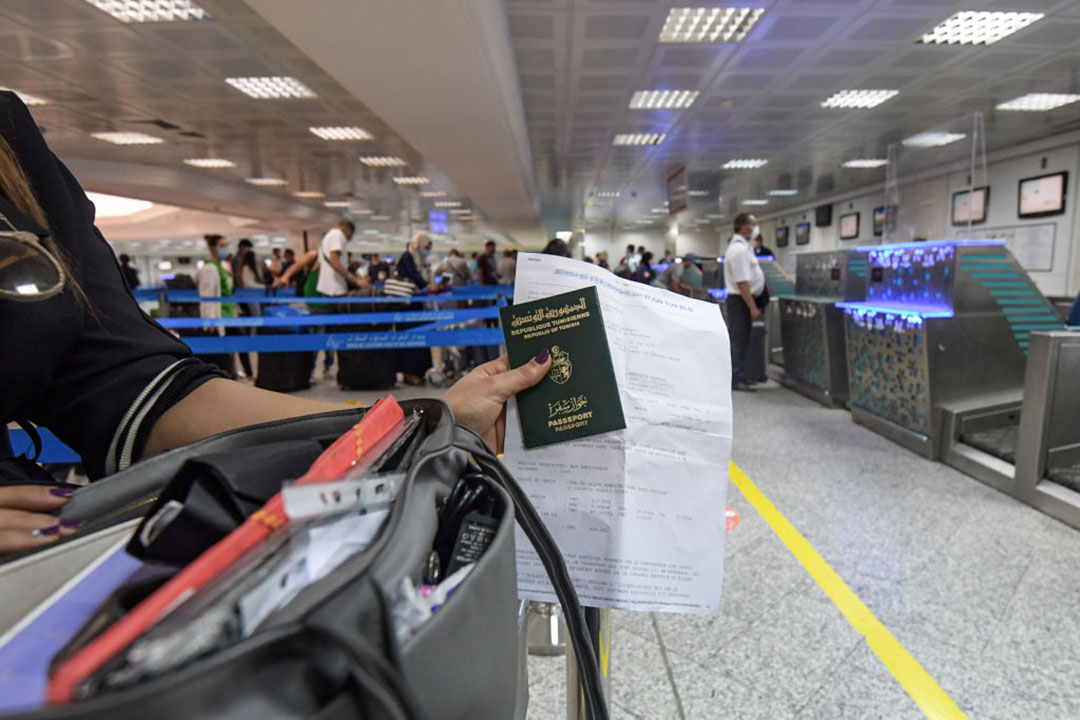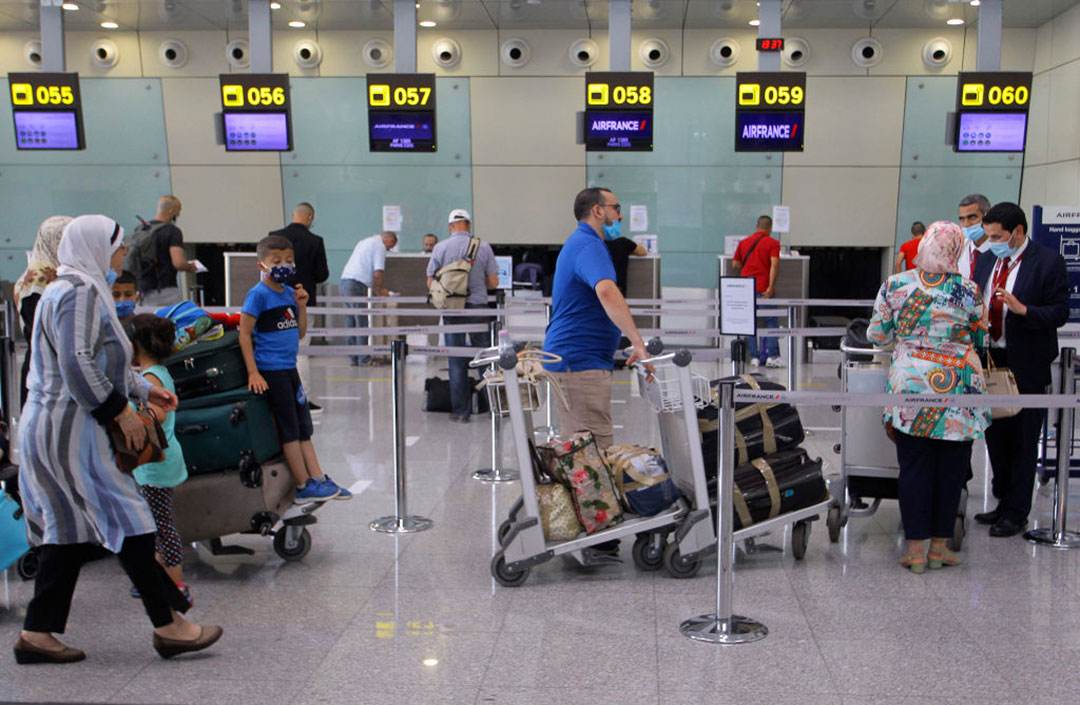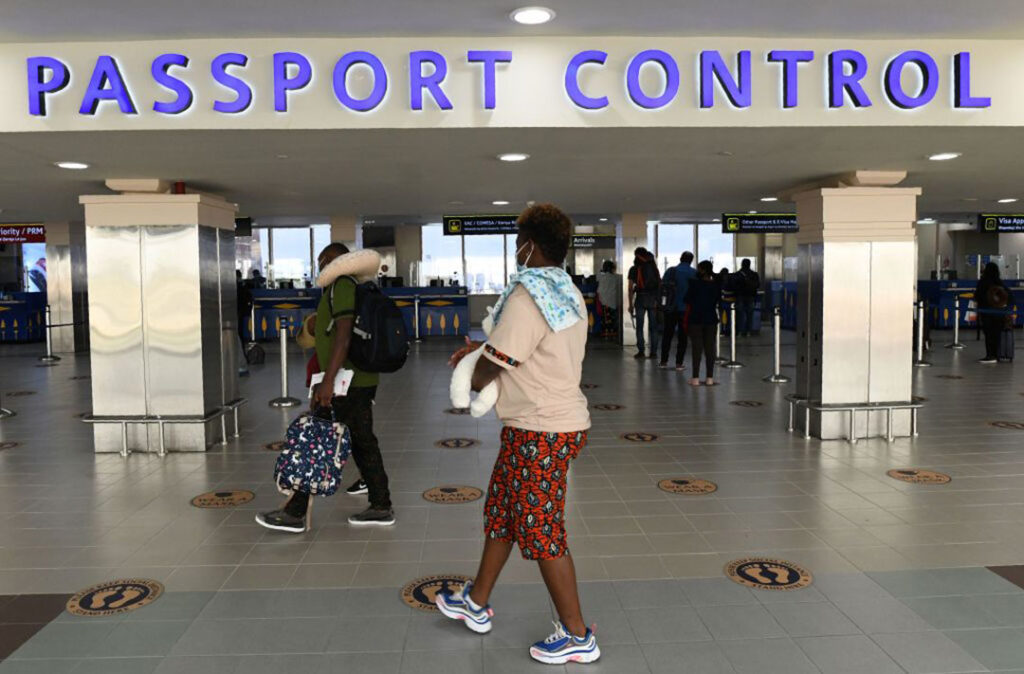ADF STAFF
When COVID-19 first appeared more than 18 months ago, cross-border travel became the key factor that turned an outbreak in central China into a pandemic reaching every corner of the globe. International travel continues to help the virus’s variants spread from country to country.
The African Union, in partnership with the Africa Centres for Disease Control and Prevention (Africa CDC),wants to clip the wings of COVID-19 and future disease outbreaks with Trusted Travel. This voluntary program is designed to keep users updated on health-related restrictions as they travel and provide them with verifiable, mutually accepted documentation regarding their COVID-19 status — whether that means negative test results or vaccination. Trusted Travel also helps root out counterfeit health documents.
The program, which is powered by the PanaBIOS app, launched in October 2020. So far, at least 16 of the African Union’s 55 member states have joined Trusted Travel. Zimbabwe became the newest country to join August 1.

The program has also enlisted COVID-19 testing labs and has four airlines as partners.
“Africa CDC Trusted Travel is the future of all travel in Africa,” Dr. John Nkengasong, director of Africa CDC, posted on Twitter in March when Togo-based ASKY Airlines and Ethiopian Airlines joined the program. Kenya Airways and EgyptAir also participate.
According to Mohammed Abdulaziz, the Africa CDC’s head of disease surveillance, Trusted Travel is part of a larger African Union project to enlist the private sector and nongovernmental groups to interrupt future disease outbreaks before they can become epidemics or pandemics.
Trusted Travel already includes information on a user’s Yellow Fever vaccination status. Supporters see Trusted Travel as a tool to thwart the transmission of other diseases, including Ebola and Lassa Fever.
Kenya was the first country to adopt Trusted Travel in January. Visitors traveling to Kenya using Trusted Travel must:
- Test negative for COVID-19 using molecular RT-qPCR COVID-19 tests at least 96 hours before they travel. The results must be verified through Trusted Travel.
- Complete an online health survey and show the QR code received to port authorities upon arrival.
- Show proof of yellow fever vaccination and wear masks in public except when dining or in socially distanced situations.
The Africa CDC says the program will help avoid the economic upheavals associated with lockdowns while also minimizing the spread of COVID-19 — an increasingly important factor as Africa builds its own continentwide free-trade zone.

“We encourage the use of digital tools such as the Trusted Travel program for safeguarding public health,” said World Health Organization Director-General Dr. Tedros Adhanom Ghebreyesus, who is from Ethiopia. “But we must take care to ensure that they do not become another reason that some people are left behind.”
While Nkengasong has praised Trusted Travel, he has also been outspoken against making vaccine passports mandatory for travel while so many countries still struggle to get and administer vaccinations. Less than 2% of Africa’s 1.3 billion people are fully vaccinated against COVID-19.
“Our position is very simple. Any imposition of a vaccination passport will create huge inequities and will further exacerbate them,” Nkengasong said at a COVID-19 briefing in April.
Tedros told a gathering of African health ministers in May that a technological innovation like Trusted Travel is one way the COVID-19 pandemic can have a positive effect on the continent.
“We must all learn the lessons the pandemic is teaching us, and do everything we can to prepare for, prevent, detect and respond rapidly to future epidemics and pandemics,” Tedros said.

